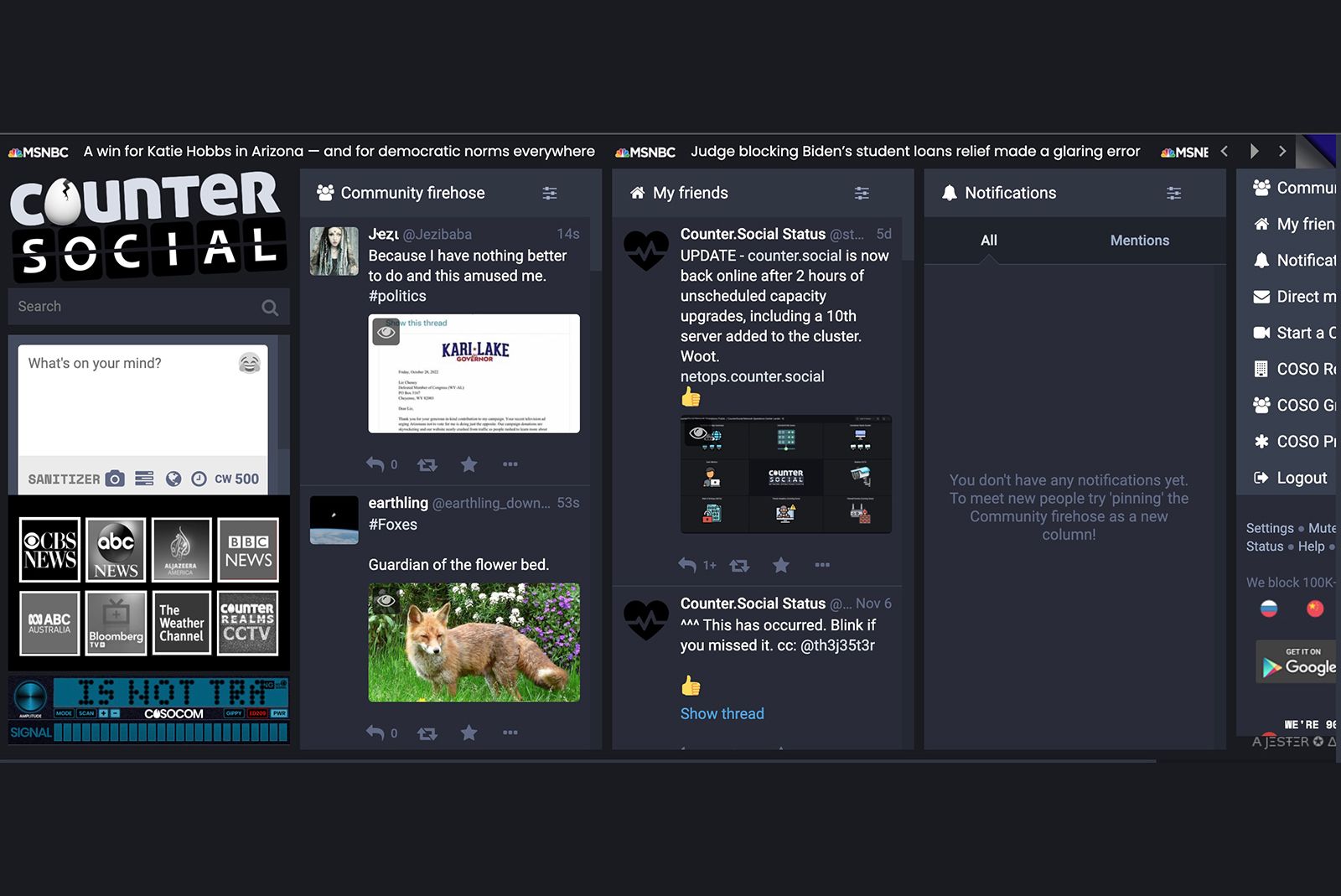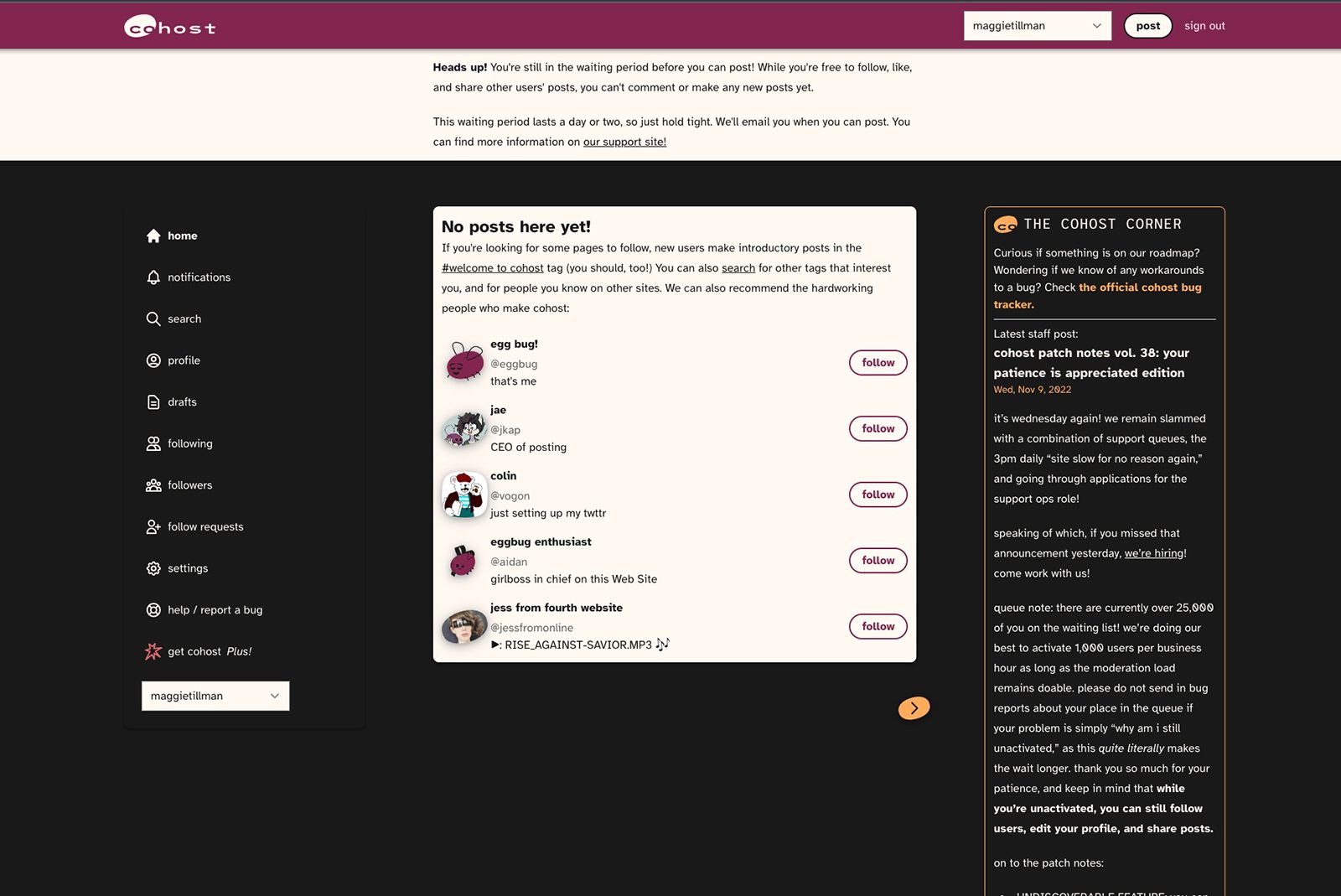There’s a lot going on with Twitter right now. Elon Musk has taken it over, fired thousands of employees, and is rolling out (and rolling back) changes on a near-daily basis at this point.
It’s pure chaos, honestly. If you’re uncomfortable with what’s happening at Twitter for whatever reason, you can simply choose to use another platform instead.
Best Twitter alternatives
Here are four unique alternatives to Twitter. We’re not just listing the most popular social networks here. We’re actually finding different sites that have a very Twitter-like experience or vibe.
Mastodon
Mastodon is a free social media site that works much like Twitter. You can post “toots” (rather than tweets), follow other users and brands, and favourite (like) and boost (retweet) posts. It’s a decentralised open-source social networking platform. It was created by Eugen Rochko, the CEO and lone employee of the nonprofit organization Mastodon gGmbH.
By being decentralised, it allows users to create, host, and moderate their own communities, or “instances”, that can communicate with each other through a system called the Fediverse.
A few popular instances include PeerTube for videos, Funkwhale for music, PixelFed for photos, and NextCloud for files. Perhaps the most famous Mastodon instance is Truth Social, aka “the social network” of former US president Donald Trump. He began Truth Social shortly after Twitter banned him. There is no common Mastodon area for everyone – like with Twitter – so you’ll need to register on a specific Mastodon instance, which can be based on a geographic location, subject, or anything. You can join as many as you want and leave or switch instances at any time.
And you can follow people across instances, so picking one doesn’t keep you from communicating with those on other instances.
Bluesky
Bluesky Social
Led by Twitter co-founder Jack Dorsey, Bluesky actually has quite a lot in common with Mastodon – it, too, is decentralised, for example. However, a bit of clever tech that Bluesky calls the AT Protocol seems like it makes the system easier to browse and navigate, so for now it’s looking a tad more user friendly.
The key bit of information right now is that Bluesky is still in beta, and you can only get access if you get an invite code from someone already using it, so it’s growing fairly slowly as a result of that restriction. This should help it to avoid the predictable fate of its servers being overwhelmed or crashing, but also means that it has some mystery to it for now.
So, you might have to do some networking just to get on this social network, but it’s growing steadily and with Dorsey’s name attached it could have a bit more staying power than some other shorter-lived options.
CounterSocial
CounterSocial launched in November 2017, with its infrastructure based on the open-source code of Mastodon (another platform we recommended). CounterSocial is unique because it has a zero-tolerance policy against trolls, spam bots, misinformation campaigns, harassment, and political foreign influence. The pseudonymous hacktivist known as “The Jester” created CounterSocial because they claimed to be sick of disinformation – so they went ahead and developed a controlled or walled social network where all that could be moderated.
As of August 2022, the site has approximately 100,000 users and, according to its founder, it continues to see steady growth.
So, what makes it like Twitter? If you’ve ever used Tweetdeck, CounterSocial’s column-based interface will instantly be recognisable. You can delete, rearrange, or create columns, and columns can be based on hashtags, user lists, and topics. If you’re a free user, you can follow, like, reshare, and comment on posts and replies. You will need to pay for a pro account ($5 per month) to access more premium features, such as changing your status and setting posts to “explode”.
Cohost
Cohost is currently in beta. It’s an ad-free social media platform co-founded by Colin Bayer and Jae Kaplan. It first rolled out to select users in February 2022.
On Cohosts, posts fall in a timeline that goes vertically, just like Twitter. Instead of the timeline being algorithmically powered, posts are always listed in the order they were posted. It feels like a classic blogging website. Posts have no character limit, and there’s an option to make multiple pages for different themes or projects. You can make a collaboratively co-owned page that multiple people can use, like for podcasts. Co-host offers a subscription to unlock premium features – such as larger uploads – and promises to “never sell your data”.
You don’t need an invitation to join Cohost. But if you don’t have an invite, you can only look around and may need to wait up to “a day or two” before posting.
Want more Twitter alternatives?
Here are a few other options – but these are more popular, and chances are, you’ve already tried them:
Tumblr: More about long-form blog-style content, with the ability to share media elements such as photos, videos, and GIFs.
LinkedIn: More for business professionals who want to network, but it has a news feed and the ability for users to follow one another and share posts, photos, videos, polls, etc.
Discord: Prominent social media site with over 150 million active monthly users. But there is no feed. There are chat rooms where you can communicate via voice or video calls.
Clubhouse: More for people who like Twitter Spaces. It lets you hosts live audio chatrooms. Clubhouse gained popularity at the peak of the pandemic.
Trending Products

Cooler Master MasterBox Q300L Micro-ATX Tower with Magnetic Design Dust Filter, Transparent Acrylic Side Panel…

ASUS TUF Gaming GT301 ZAKU II Edition ATX mid-Tower Compact case with Tempered Glass Side Panel, Honeycomb Front Panel…

ASUS TUF Gaming GT501 Mid-Tower Computer Case for up to EATX Motherboards with USB 3.0 Front Panel Cases GT501/GRY/WITH…

be quiet! Pure Base 500DX Black, Mid Tower ATX case, ARGB, 3 pre-installed Pure Wings 2, BGW37, tempered glass window

ASUS ROG Strix Helios GX601 White Edition RGB Mid-Tower Computer Case for ATX/EATX Motherboards with tempered glass…














